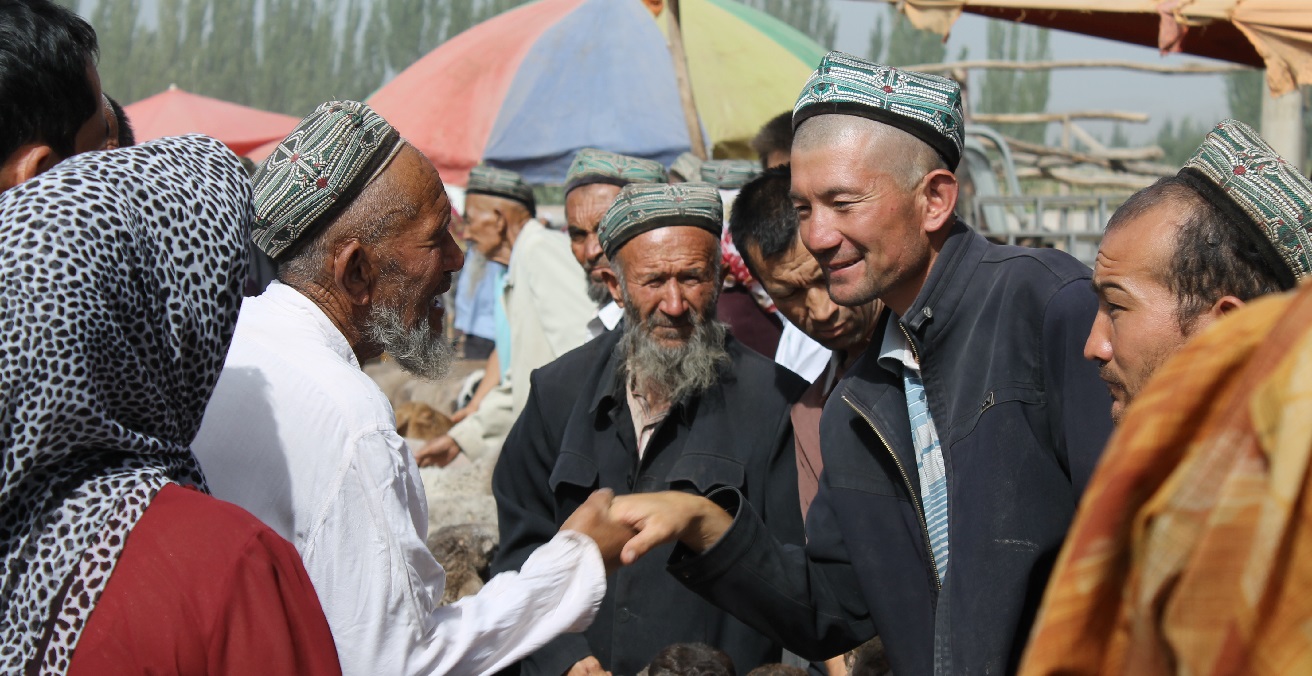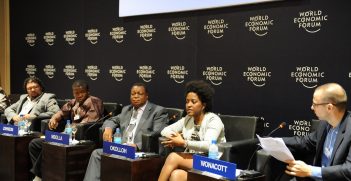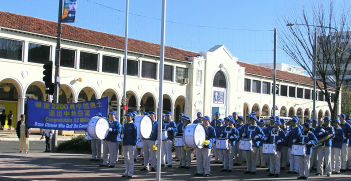The "Shockwave" on Australian Shores: Australia’s Discomfort Over Beijing’s Actions at Home and Abroad

What is unfolding in Xinjiang is the largest detention of an ethnic group since the Holocaust. Australia has a responsibility to increase pressure on Beijing to cease its large-scale human rights abuses of the Uyghur minority.
Prior to COVID-19, the East Asia Security Symposium in Beijing was invaluable in identifying how Chinese scholars, officials, and military personnel viewed China, the West, the international order, and China’s desired future trajectory. The annual symposium allowed foreign participants to glean important insights into how Beijing viewed itself and others.
Reflecting on China-Australia relations, a Chinese academic presenting at the 2019 symposium stated the Chinese Communist Party (CCP) had begun a shockwave around the world. He identified that Australia was the first to experience the shockwave, which had since reached the shores of the United States. He explained that “because China is big, the shockwave is very big” and that “the rise of China does have a serious impact on Australia.”
Our interlocutor also believed conflict between Australia and China was “almost guaranteed.” His reasoning was because “China is imperfect.” He identified that China is not a liberal democracy, it is not fully developed, and it is not “well-governed.” He went on to explain that it was mostly as a result of China’s large size that it had increased its power and significance globally. There was nothing exceptional about China aside from its size. He also warned that unlike the US, conflict with China was more pronounced for Australia due to their intertwined economies.
I reproduce the interlocutor’s views here because he provided an assessment of China as it was (albeit, through his eyes) rather than China as he or others might want it to become. The shockwave referred to Beijing flexing its muscles internationally. This process became most noticeable with Beijing’s creeping annexation in the South China Sea during the Obama years, which unnerved Australia and other regional states. This strategy now extends to the Pacific.
A number of states have begun to re-examine their relations with China. Within the Indo-Pacific region, Japan, South Korea, Australia, Canada, New Zealand, and Taiwan have all experienced economic coercion by Beijing. In 2020, India was physically attacked in deadly border clashes that were largely overshadowed by the pandemic. The Philippines and Vietnam are frequently harassed by the “Little Blue Men”—Beijing’s maritime militia—and experience recurrent Chinese incursions in their exclusive economic zones. Canada and Australia have also experienced hostage diplomacy, with citizens taken into custody for political purposes.
Problems at home
The COVID-19 pandemic and the situation in the Xinjiang Uyghur Autonomous Region have attracted much international interest. While Beijing initially denied the detention camps in Xinjiang, sustained academic and media attention, combined with satellite imagery of camps across Xinjiang, forced Beijing to acknowledge their existence. However, the camps were rationalised by Beijing as being “vocational training centres.”
The #MeTooUyghur movement soon countered these claims, as members of the Uyghur diaspora began identifying their highly skilled relatives—including university heads, academics, and business-people—who had also disappeared into the camps. Beijing did another volte-face and identified that some camps served as “re-education centres” to “de-radicalise” so-called Muslim extremists.
In 2018, the Congressional-Executive Commission on China (CECC) characterised the purpose of the camps as “political re-education.” It cited evidence of multiple human rights violations including sleep deprivation, inadequate clothing for conditions, violence, sexual abuse, other forms of abuse, and detention-related deaths. Various accounts by former detainees have verified these allegations.
Current estimates indicate one to two million Uyghurs and other non-Han ethnic groups have been incarcerated in camps across Xinjiang. Australian permanent residents have also been detained. There is also evidence that former detainees have been forced into unfree labour in factories across China. This is now causing significant supply chain issues for multinational companies.
Via its diplomatic corps, Beijing and its supporters assert that such assessments are false. Beijing’s Foreign Ministry spokesperson frequently characterises questions about the camps as “fake news” or “slanderous lies.” However, many accounts on both the camps and forced labour in Xinjiang come from Chinese government and media sources; the testimony of Uyghurs and nationals of other countries who have been wrongfully detained by Chinese authorities and later released, usually Kazakhs; foreign nationals married to Uyghurs who have disappeared into the camps; and eye-witness accounts from scholars and journalists.
Moreover, the Chinese state is leaking. In November 2019, more than 400 internal Chinese documents were leaked. In January 2021, another massive database leak occurred. It contained official reports and information on surveillance capacities.
The large incarceration of adult Uyghurs has seen Uyghur children sent to orphanages and boarding schools. Inter-generational separation of children is a technique of cultural genocide. It seeks to destroy minority cultures, assimilating children into the majority culture. Government propaganda on removed Uyghur children purports that the party is more suitable to care for the children than their own parents. This is a justification that has been used by colonial authorities the world over, including in Australia in the case of the Stolen Generations.
The passage of bills such as the Customs Amendment (Banning Goods Produced by Uyghur Forced Labour) Bill 2020, which is currently before the Senate, and the Magnitsky Act would enable Australia to implement targeted sanctions against human rights abusers, pressuring actors and states to comply with international norms, laws, and regulations.
Australia-China Relations
Australia and other states globally have actively engaged with the People’s Republic of China since the 1970s. However, many stakeholders have tried to make China into what they want China to become, which was often in direct contrast to Beijing’s views of China and its future. Beijing does not desire a free, open, and democratic society. Beijing’s primary purpose is to keep the CCP in power.
Australia now faces a challenge. Xi Jinping’s China is not what Canberra had hoped China would become. Instead of edging towards democracy, China has become more authoritarian, assertive, aggressive, and it has challenged Australia’s sovereignty and independence. In an address at the University of Adelaide in April 2021, former defence minister Christopher Pyne identified that the “confident and capable” China now poses serious risk within the Indo-Pacific region.
The important thing for Australian policymakers to recognise is that Australia is not alone regionally nor internationally. Australia must join with other like-minded states to end the creeping genocide unfolding in Xinjiang and to pressure China to uphold the rules-based international order.
Australia should support regional states experiencing similar duress. Moreover, in order to truly understand Beijing, Canberra needs to hear Beijing’s statements, rhetoric, and threats and act accordingly, centring Australian interests and independence as the linchpin of such actions.
During its recent trade disputes with Australia, Beijing demonstrated that it is not a stable and reliable trading partner. Concerns that the Morrison government has “mishandled” the relationship are simplistic and overlook the pattern of Beijing’s international and bilateral behaviour within the Indo-Pacific over recent decades. It also overlooks past government decisions from both Labor and the Coalition. Beijing’s actions in Xinjiang are a clarion call for states to push back against Beijing’s habitual disregard of the rules-based order and international laws.
Anna Hayes is a Senior Lecturer in International Relations at James Cook University and an Honorary Research Fellow at the East Asia Security Centre. Anna has presented numerous papers in Beijing, on topics ranging from the situation in Xinjiang, how the Belt and Road Initiative has been viewed outside of China, as well as the Quad and the Indo-Pacific from the Australian perspective.
This article is published under a Creative Commons License and may be republished with attribution.





